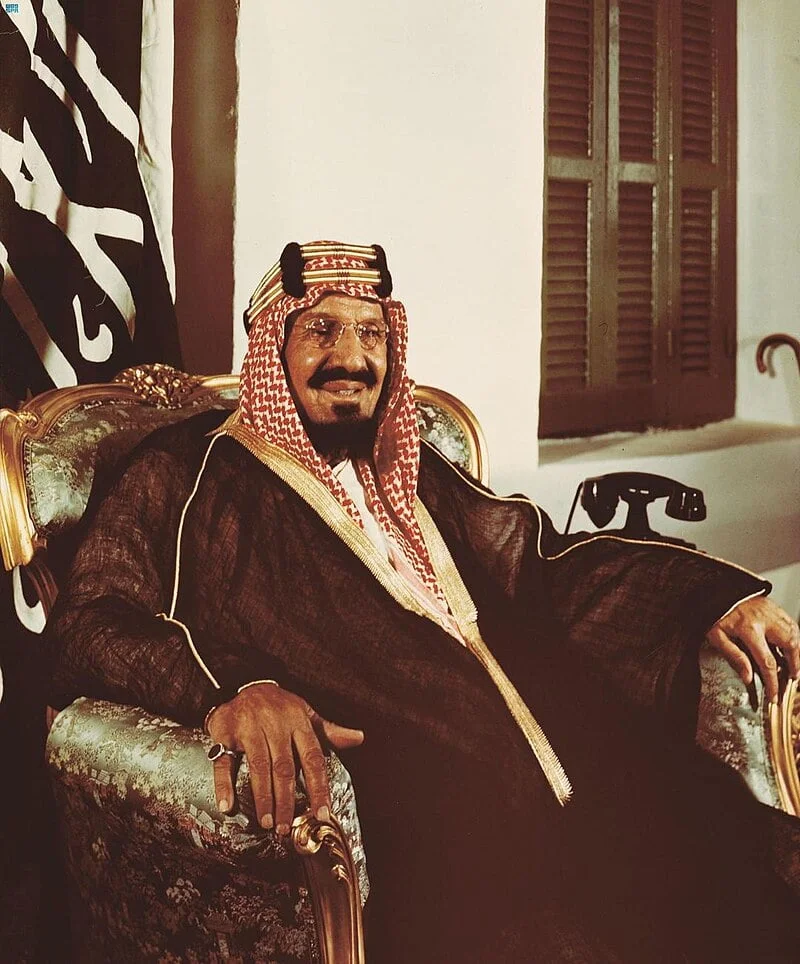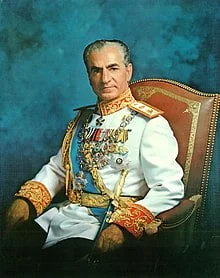Real Celebrities Never Die!
OR
Search For Past Celebrities Whose Birthday You Share

Ibn Saud
Birthday:
15 Jan, 1875
Date of Death:
09 Nov, 1953
Cause of death:
Heart attack
Nationality:
Saudi
Famous As:
King
Age at the time of death:
78
Ibn Saud's Quote's
Ibn Saud, born Abdul Aziz bin Abdul Rahman bin Faisal Al Saud, was a visionary leader who played a pivotal role in shaping the modern state of Saudi Arabia. His remarkable journey from exile to the establishment of the Kingdom of Saudi Arabia is a testament to his determination, strategic prowess, and unwavering commitment to his people.
Early Life and Exile
Ibn was born in Riyadh, Nejd in 1880 to the prominent House of Saud family who held dominion over the region of Nejd in Arabia. However, his family was forced into exile when he was just ten years old due to the invasion of his lands by the powerful Rashidi tribe. His time spent in exile would shape his character and fuel his determination to reclaim his family’s lands.
Path to Reclamation
During his time in exile, Ibn Saud faced many difficulties and was even penniless. However, he never lost sight of his ultimate goal which was to reclaim his familial lands. When he was just 21 years old, Ibn Saud took a bold step towards conquering his family’s lands when he set out on camel with 40 men from Kuwait to reconquer Nejd from the Rashidi tribe. Their destination was Riyadh, the former capital of the House of Saud.
Seizing Riyadh
Ibn Saud and his men finally arrived in Riyadh after a difficult journey. They slipped into town at night and devised a strategy to seize the city from the Rashidi governor. Saud managed to assassinate the governor and successfully captured the castle, signaling the resurgence of the House of Saud. The next two years were spent reconquering half of central Arabia thereby regaining control over vast territories.
Religious Alliances
Ibn Saud recognized the significance of religion in his pursuit of power and stability. In the years preceding World War I, he made a conscious decision to revive his dynasty’s support for Wahhabism, an extremist puritanical revival of Islam. As a devout Muslim himself, Ibn Saud believed in the literal interpretation of the Quran and sought to align his rule with his religious beliefs.
Formation of the Ikhwān
To consolidate his power, Ibn Saud established the Ikhwān, a militantly religious tribal organization. The Ikhwān, also known as the Brethren, played a crucial role in encouraging his followers to fight and massacre their Arab rivals. This fanatical brotherhood not only helped Ibn Saud bring nomadic tribes under his control but also served as a formidable force in his military campaigns.
Under Ibn Saud’s guidance, the religious leaders declared it a religious duty for Wahhabis to abandon nomadism and settle near desert wells. This strategy aimed to establish a sedentary population that could be easily recruited into his army. However, the harsh reality of this initiative proved challenging, as many nomads faced destitution after selling their flocks and were unable to adapt to settled life.
Strategic Alliances during World War I
During the First World War, Ibn Saud entered into a strategic alliance with the British and signed a treaty accepting British protectorate status. He also agreed to wage war against Ibn Rashid, a rival ruler who was supported by the Ottoman Empire. This alliance provided him with much-needed arms and a monthly subsidy of 5,000 pounds from the British government.
Ibn Saud initially remained inactive in the fight against Ibn Rashid and claimed that the monthly subsidy provided by the British wasn’t enough to launch a successful campaign. However, in 1920, he finally launched a military offensive against Ibn Rashid, culminating in the extinguishment of Rashidi rule in 1922. This established him as a formidable ruler in the region.
Unification of the Arabian Peninsula
Following his victory over Ibn Rashid, Ibn Saud focused his efforts towards unifying the Arabian Peninsula. The Hejaz region was under the rule of Sharif Husayn of Mecca who declared himself caliph and established a rival dynasty. Fearing encirclement by Sharif, Ibn Saud decided to invade Hejaz and expand his dominions.
Using his political acumen and the support of religious leaders, Ibn Saud orchestrated a campaign to eliminate his Arab rivals. He dispatched the Ikhwān to raid neighboring territories, only to disavow their actions by informing the British that the raids were against his orders. In 1924, the Ikhwān successfully captured Mecca, and the Hejaz was incorporated into Ibn Saud’s expanding kingdom.
Establishment of the Kingdom of Saudi Arabia
With no remaining rivals to conquer, Ibn Saud focused on governance rather than conquest. In 1932, he formally unified his domains into the Kingdom of Saudi Arabia, proclaiming himself as its first king. As an absolute monarch, Ibn Saud wielded immense power, making all major decisions himself or delegating them to trusted individuals.
The Oil Discovery and Economic Transformation
In 1938, the discovery of oil in Saudi Arabia marked a turning point in the country’s history. Ibn Saud responded to this newfound resource by granting substantial authority over Saudi oil fields to American companies. This decision laid the foundation for the economic transformation of the kingdom.
Initially, the majority of oil revenues went directly to the royal family. However, as the income from oil increased, Ibn Saud began investing in infrastructure, education, and healthcare to improve the lives of his subjects. He also implemented measures to combat crime, particularly during the annual pilgrimage to the holy cities of Mecca and Medina.
Legacy of Ibn Saud
Ibn Saud’s life is a testament to the power of vision and resilience. From his humble beginnings as an exile to the establishment of the Kingdom of Saudi Arabia, he demonstrated remarkable leadership and transformed the Arabian Peninsula. His legacy continues to shape the region, and his accomplishments will forever be remembered in the annals of history.
Name:
Ibn Saud
Popular Name:
Ibn Saud
Gender:
Male
Cause of Death:
Heart attack
Spouse:
Place of Birth:
Riyadh, Nejd
Place of Death:
Shubra Palace, Ta'if, Saudi Arabia
Occupation / Profession:
Personality Type
Executive: Ibn Saud was a dominant and determined person who would stop at nothing to get what he wants.
He founded the Ikhwan, a tribal military force that helped him conquer much of the Arabian Peninsula, but later had to suppress them when they rebelled against his modernization efforts.
He named Saudi Arabia after himself.
Ibn Saud reconquered Riyadh in 1902 with just 40 men, marking the beginning of his campaign to unify Arabia and establish the Kingdom of Saudi Arabia.
Ibn Saud signed Saudi Arabia's first oil concession agreement with an American company in 1933, laying the foundation for the country's future wealth and global influence.
Saud fathered 52 children with different women
He also served as the king of Hejaz.
He reigned as the first king of Saud Arabia
He served as the King of Nejd
Ibn Saud founded Saudi Arabia

